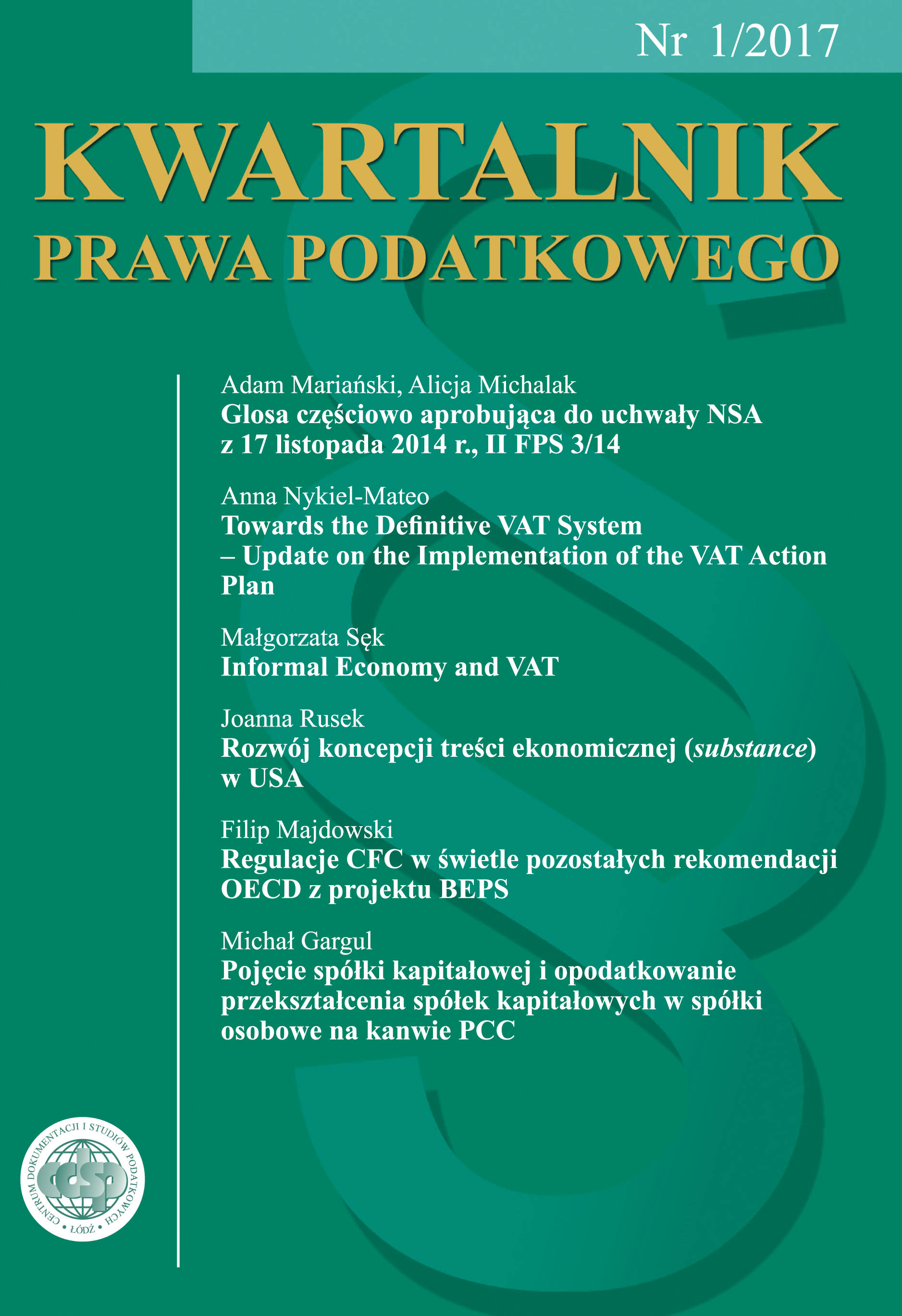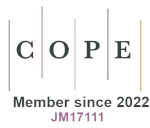Development of the Concept of Economic Substance in the United States
DOI:
https://doi.org/10.18778/1509-877X.01.04Keywords:
tax avoidance, economic substance, business purposeAbstract
An important challenge of the modern tax law is efficient countering of tax avoidance. One of the ways of tackling this problem is investigating and examining of taxpayers’ activities from the perspective of their economic substance. Especially interesting from this perspective seem the American judicial doctrines, in particular the economic substance doctrine and the business purpose doctrine. An analysis of the abovementioned doctrines indicates that the concept of economic substance should be interpreted in the context of a change (improvement) of the taxpayer’s economic/financial/commercial situation resulting from something more than an obtained tax benefit. Such change (improvement) of the taxpayer’s situation may be analyzed from two perspectives – objective and subjective. The objective perspective concentrates on an actual change (improvement) reflected in the amount of income generated by the taxpayer. On the other hand the subjective perspective concentrates on the taxpayer’s belief that the undertaken actions were aimed at the realization of a specific business goal (generation of profit). The objective perspective as not requiring a judgement of the taxpayer’s motives (intentions) seems however more measurable and thus more feasible to apply in practice.
Downloads
References
Brzeziński B., Anglosaskie doktryny orzecznicze dotyczące unikania opodatkowania, Toruń 1996.
Google Scholar
Burke K.C., Refraiming Economic Substance, „Virginia Tax Review” 2011, nr 3.
Google Scholar
Internal Revenue Service, Additional Guidance under the Codified Economic Substance Doctrine and Related Penalties, 10.10.2014.
Google Scholar
Jensen E., The Tiley Trilogy and U.S. Anti-avoidance Law, „eJournal of Tax Research” 2014, t. 12, nr 1.
Google Scholar
The Joint Committee On Taxation, Technical Explanation Of The Revenue Provisions Of The „Reconciliation Act Of 2010”, As Amended, In Combination With The “Patient Protection And Affordable Care Act”, 21.03.2010.
Google Scholar
Lampreave P., An Assessment of the Anti-Tax Avoidance Doctrines in the United States and the European Union, „Bulletin for International Taxation” 2012, nr 3.
Google Scholar
Lipton R.M., „Codification” of the Economic Substance Doctrine – Much ado about Nothing?, „Journal of Taxation” 2010, nr 6.
Google Scholar
Madison A.D., The Tension Between Textualism and Substance-Over-Form Doctrines in Tax Law, „Santa Clara Law Review” 2003, nr 43.
Google Scholar
Pietruszkiewicz C.M., Economic Substance and the Standard of Review, „Alabama Law Review” 2009, t. 60, nr 2.
Google Scholar
Tiley J., Judicial Anti-avoidance Doctrines: the US Alternatives – Part 2, „British Tax Review” 1987, nr 6.
Google Scholar
Downloads
Published
How to Cite
Issue
Section
License

This work is licensed under a Creative Commons Attribution-NonCommercial-NoDerivatives 4.0 International License.
PlumX metrics









